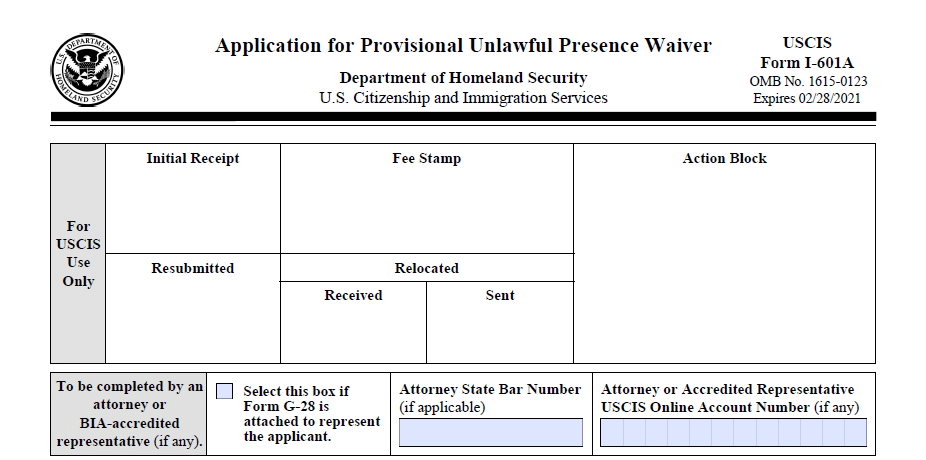The USCIS Form I-601A is used to apply for a provisional unlawful presence waiver. Immigration waivers are used in cases where someone is inadmissible, meaning that they are ineligible for a visa or for a green card. The I-601A is special because it is only used for one specific ground of inadmissibility: those people who have spent time unlawfully in the US and who intend to leave to attend an interview at an embassy or consulate. It cannot include other waiver reasons. Those applying for a waiver abroad often use a similar but different form, the I-601.
Am I eligible for the I-601A waiver process?
Not everyone is eligible to use the waiver process, and some people are eligible to adjust status in the US without getting this waiver. First, it’s important to understand that the I-601A can only waive a person’s unlawful presence in the US once they have left. It cannot help in cases where someone has a criminal conviction, has made a misrepresentation, has entered unlawfully multiple times, or many other situations. Even if a waiver is approved on form I-601A, if there is another type of inadmissibility, the person could be denied at their interview abroad.
There is no better way to figure out if the I-601A process works for you and your family than to schedule a free immigration consultation.
How long does the I-601A take? What are the I-601A processing times?
There is a lot of variation in processing times for the I-601A provisional waiver. However, as of October 2020, it is common for I-601A waivers to be in process for longer than one year. This is likely due to the pandemic and slower overall processing by USCIS. USCIS generally follows a “first in, first out” rule of processing cases which are filed first, but there is some variation even with that rule.
Sometimes, a delay means that a case is going to be issued a “Request for Evidence” or RFE. Those requests typically are used to ask for more evidence of “extreme hardship.” It’s important to work with a lawyer to review the reasons for any requests for evidence as well as what kinds of evidence might be useful to show extreme hardship. Schedule a consultation today to review the best practices for preparing this kind of immigration waiver.

